What is the State of the Union speech?
- Published
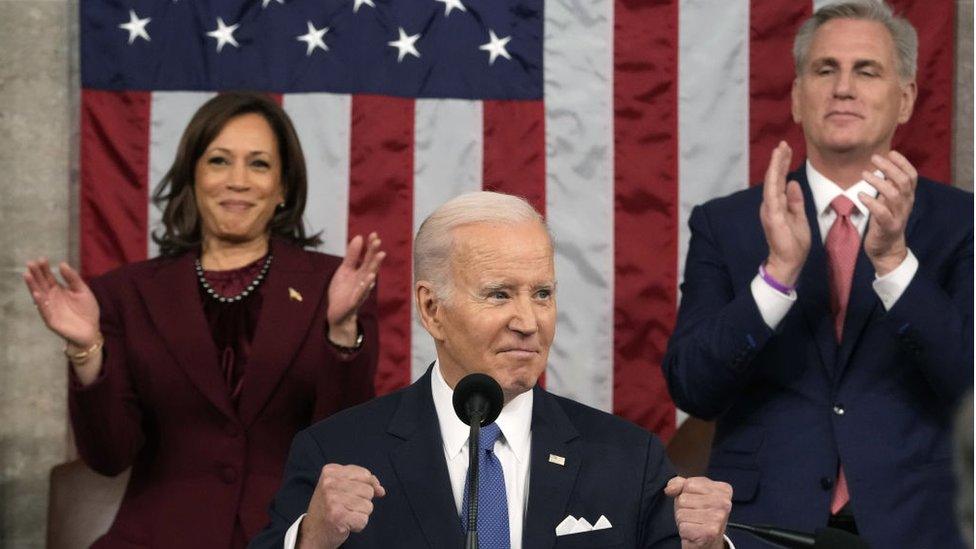
US President Joe Biden will deliver his third State of the Union address on Thursday 7 March.
The annual event is the keynote speech by the president to Congress in which he sets out his agenda for the next year, highlights his accomplishments to the American people, and shapes a political message.
It is a requirement of the US constitution, external that the president "shall from time to time give to Congress information of the State of the Union, and recommend to their consideration such measures as he shall judge necessary and expedient".
That requirement has been interpreted differently in the more than 200 years since President George Washington delivered the first in 1790 in New York, then the US capital.
In recent decades the State of the Union has become one of the major media events of the US political calendar, a closely watched affair that is countered by a rebuttal address from the opposition.
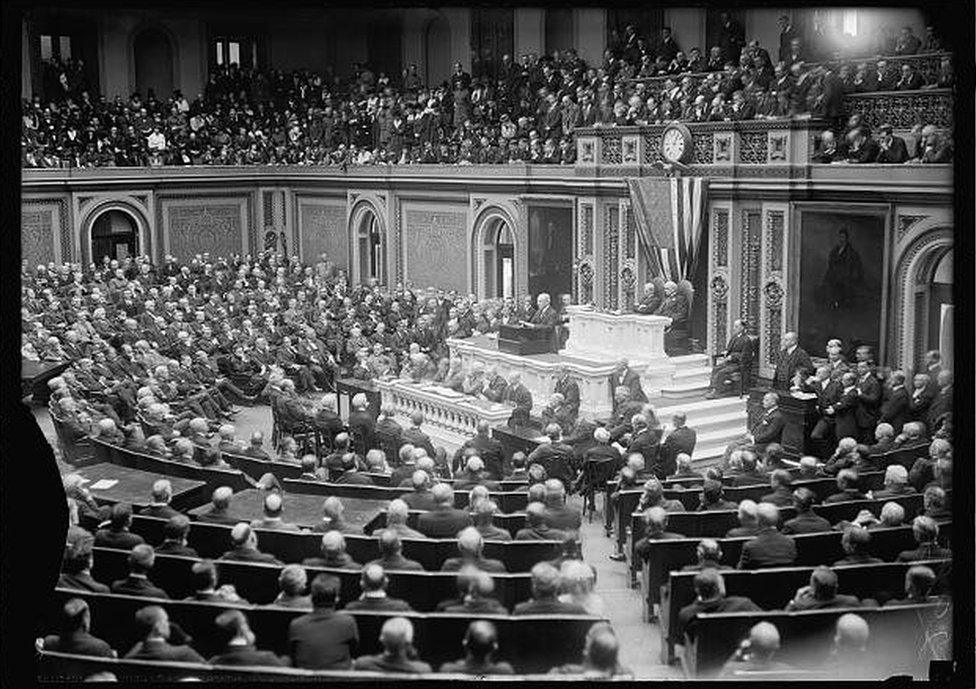
"Washington is amazed", was the Washington Post headline after Mr Wilson spoke
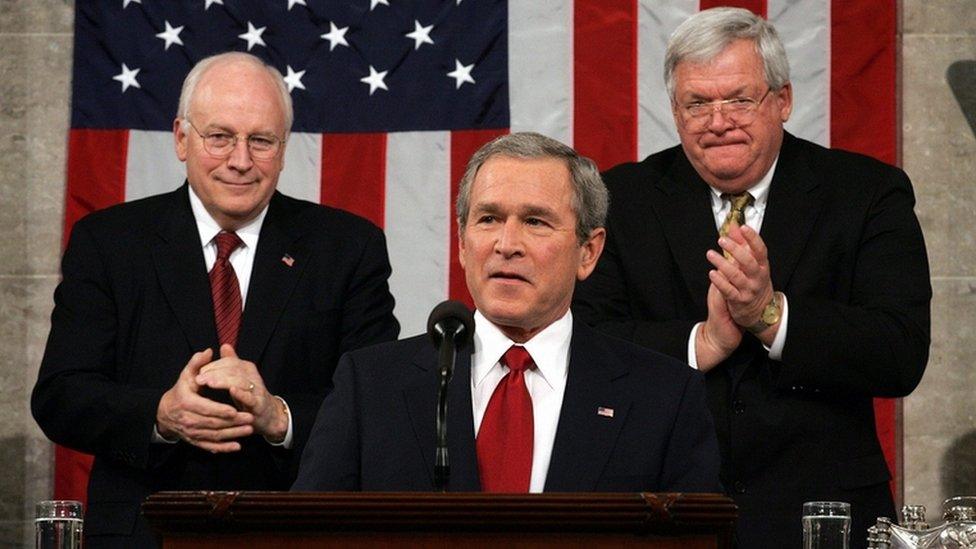
George W Bush
But through much of the 19th Century, presidents sent only a written statement.
The third president, Thomas Jefferson, objected to appearing in person - saying it was too much like an imperial or king's speech, and for the next 100 years presidents sent a written message to Congress that was then read out for them.
President Woodrow Wilson, who led the United States into World War I, was the first president since John Adams to address Congress directly, in 1913 urging reform of high US tariff barriers., external
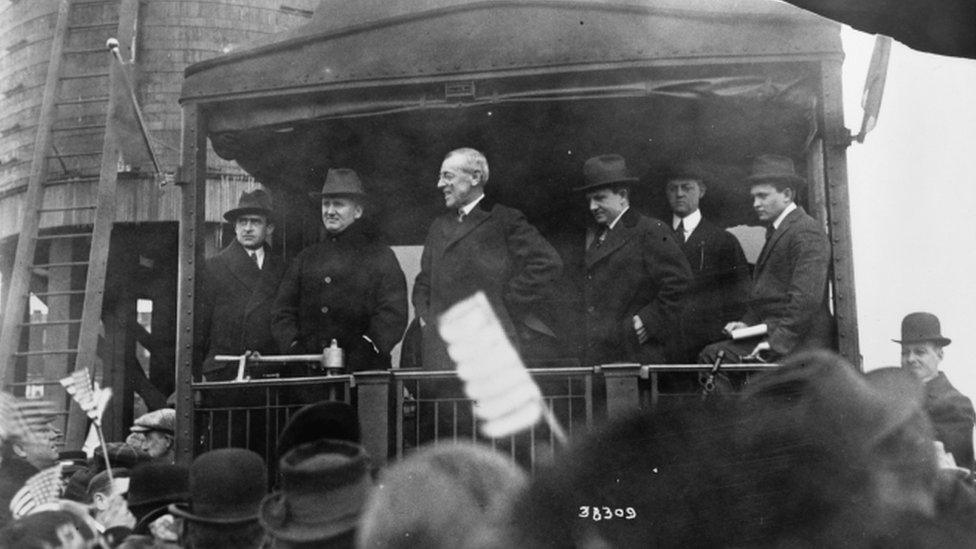
Woodrow Wilson, seen here on the back of a train, revived the practice of the spoken address
But as the power of the presidency has increased in the last century, the importance of the State of the Union speech has grown.
And that power has been reinforced by the role of television and radio, which have allowed the president to address the American people directly.
Impact of the media
In 1922, Warren Harding became the first president to broadcast his speech live on the radio, according to the US House of Representatives clerk's office.
Franklin Delano Roosevelt, who took office in 1933, was a master of the radio address.
His "Four Freedoms" State of the Union speech, external in 1941 outlined the rights that Americans would soon be fighting for as the US edged towards joining World War II.
By 1947, under President Harry Truman, the State of the Union speech was televised - and by the 1960s it was moved to a 21:00 evening time slot to gain a greater television audience. It is traditionally carried live by all major US broadcast networks.
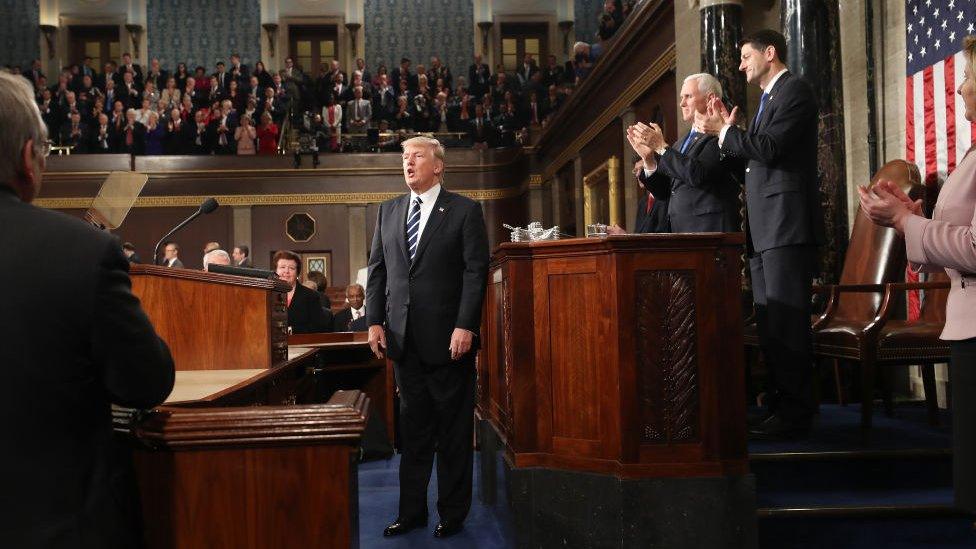
Mr Trump addresses Congress after winning the election
In later years President Lyndon Johnson used the State of the Union to launch his Great Society programme, external to end poverty in America, while in 1994 Bill Clinton promoted his stalled plan for healthcare reform, external.
But two of the most memorable State of the Union messages came in the 19th Century.
Making history
In 1823, President James Monroe outlined the "Monroe Doctrine", external, which called for the European powers to cease interfering in the affairs of the Americas, and endorsed the movement for independence by South American nations from Spain.
And in 1862, President Abraham Lincoln expressed his desire for the Civil War to lead to the emancipation of the slaves, which was later realised in his Emancipation Proclamation, which freed the slaves in the Southern states in rebellion from the Union.
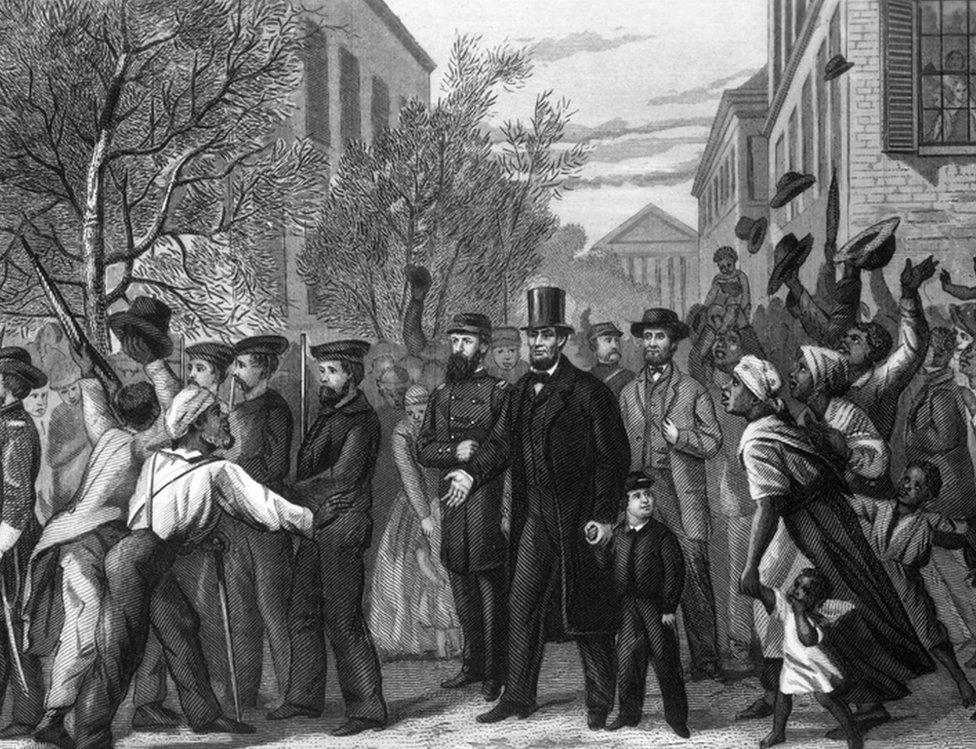
In Abraham Lincoln's speech he outlined his vision to free the slaves
The State of the Union speech has always been flexible - addressing both domestic and foreign policy needs.
In 1996, a year after his party lost control of the US House of Representatives for the first time in 42 years, Democratic President Bill Clinton famously declared "the era of big government is over".
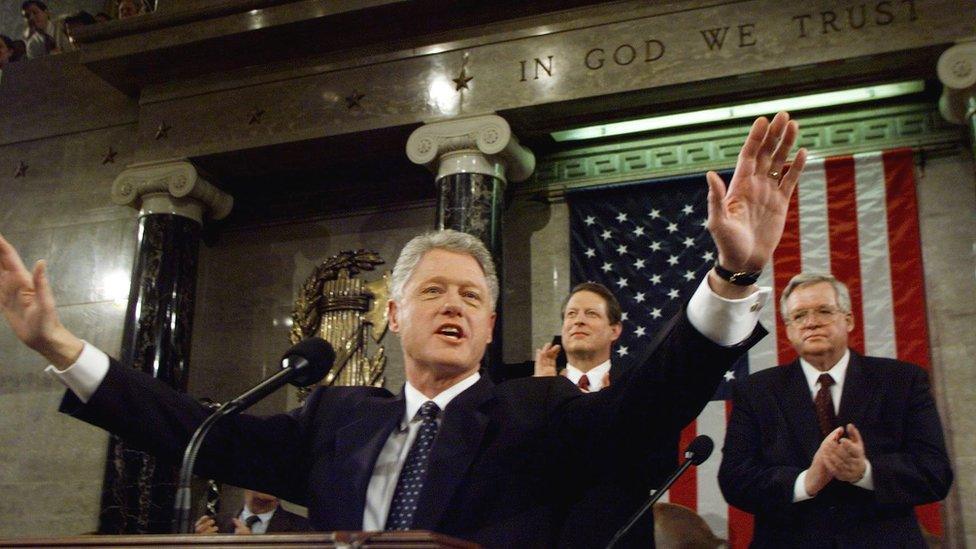
Bill Clinton
In 2002 and 2003 President George W Bush used his State of the Union speech to argue the moral case for war against Iraq, labelling the regime part of the "axis of evil" that threatened world peace., external
A key message of Mr Bush's last State of the Union in 2008, external resonated deeply in retrospect.
"At kitchen tables across our country, there is concern about our economic future," he said, months before the credit crunch become a full financial meltdown.
He added: "In the long run, Americans can be confident about our economic growth."
The following year, in his first address to Congress, Democratic President Barack Obama spoke to a nation in the midst of economic crisis.
"I want every American to know this: We will rebuild, we will recover, and the United States of America will emerge stronger than before," he said.
In his final State of the Union, Mr Obama surprised Vice-President Joe Biden, who had recently lost a son to brain cancer, with a special assignment to lead a cancer-research task force.
"For the loved ones we've all lost, for the families that we can still save, let's make America the country that cures cancer once and for all," he said. "What do you say, Joe?"
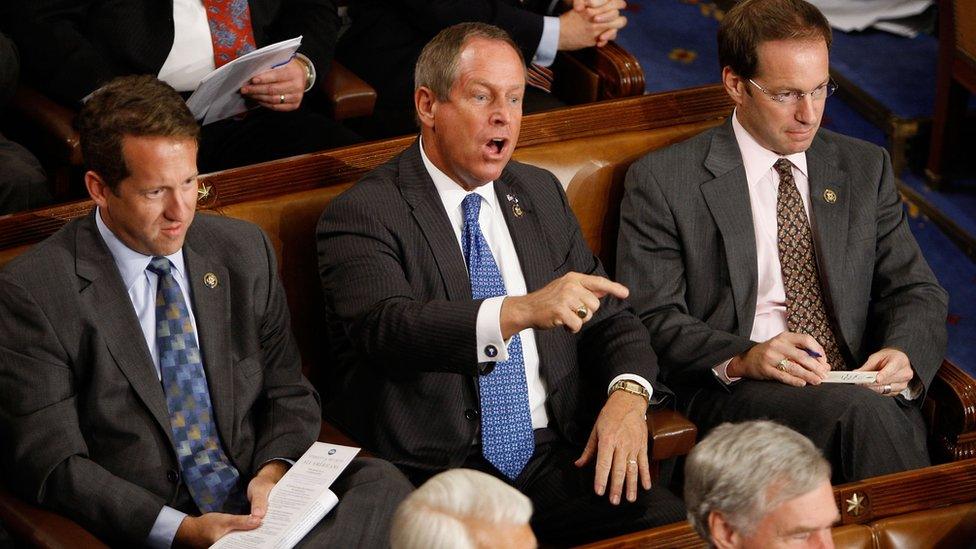
Republican Congressman Joe Wilson shouted "You lie" at Mr Obama during his remarks in 2009
Designated survivor
The State of the Union is held in the House of Representatives' chamber in the US Capitol, and begins with a formal invitation.
The House's sergeant at arms announces the president, who enters to a standing ovation.
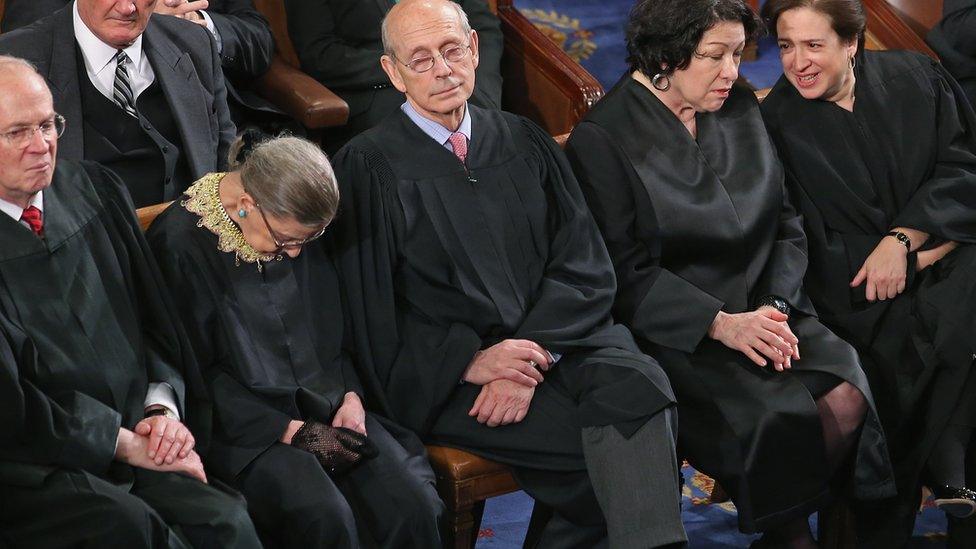
Supreme Court Judge Ruth Bader Ginsburg admitted to falling asleep during a speech by Mr Obama
After the president delivers the address, the opposition party typically responds with a televised address from a politician it wants to showcase.
As is customary when the nation's top leaders are gathered at a single location, one member of the cabinet - the designated survivor - does not attend the State of the Union address.
He or she remains at a secure location to ensure continuity of government should a catastrophic event occur.
In recent years, newly-elected presidents have addressed joint sessions of Congress shortly after taking office and while these have not been officially recorded as State of the Union speeches, they have widely been perceived as such.
- Published13 January 2016
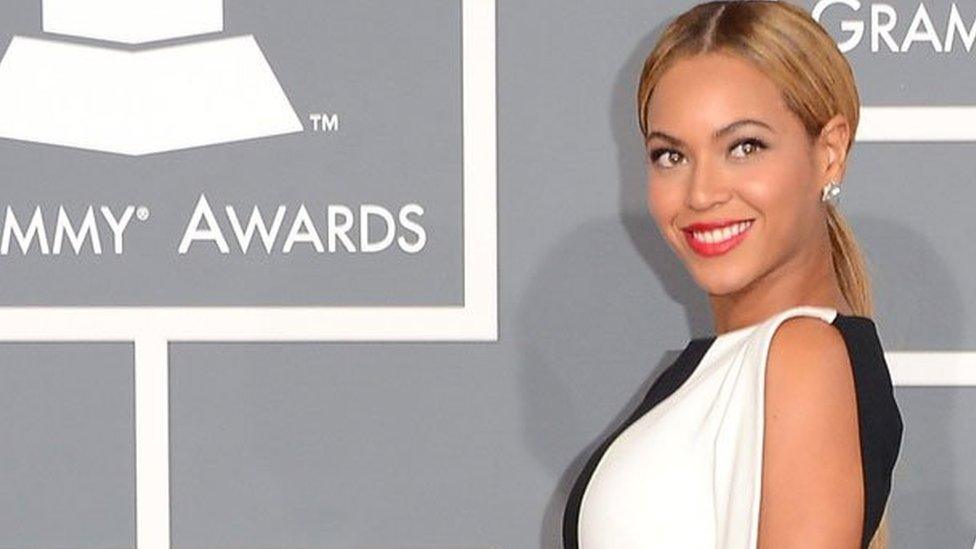
- Published26 January 2018
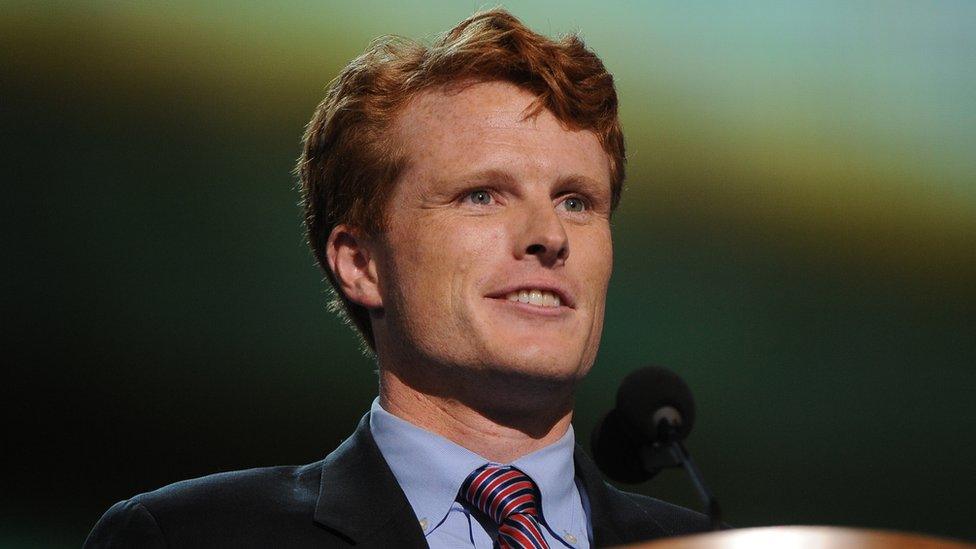
- Published1 March 2017